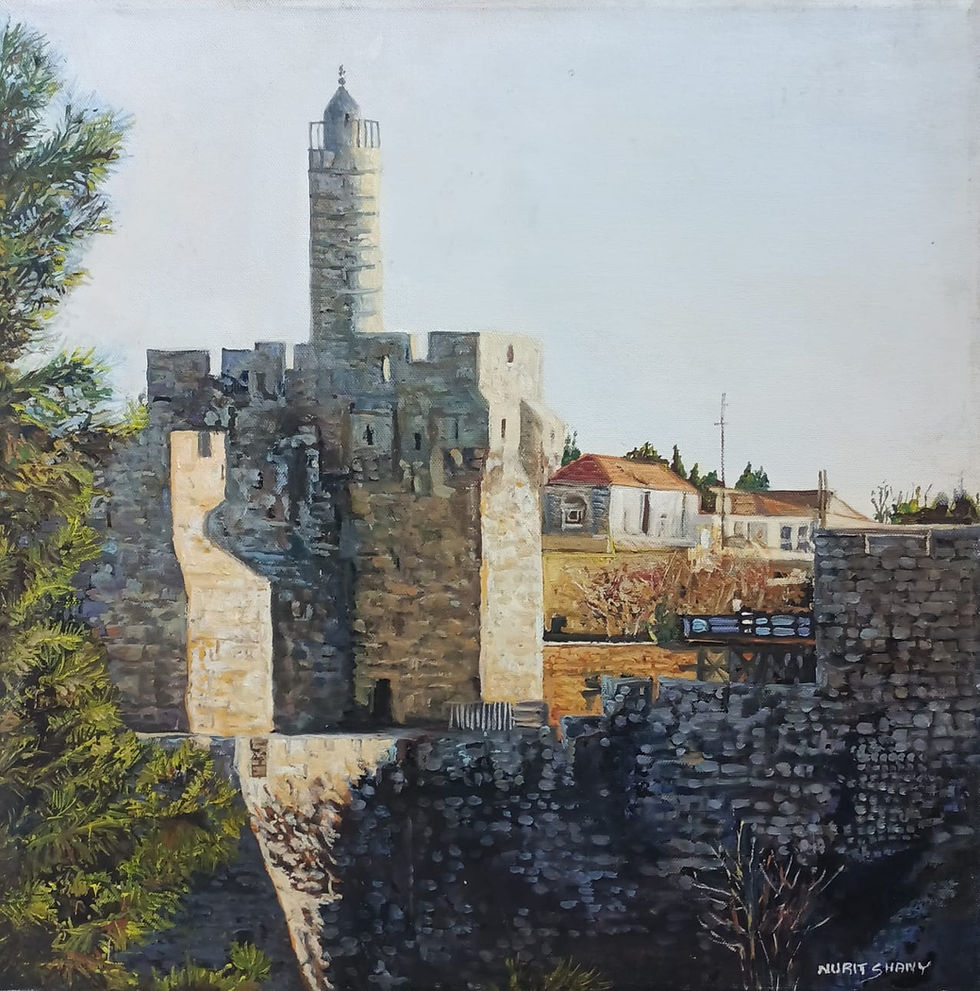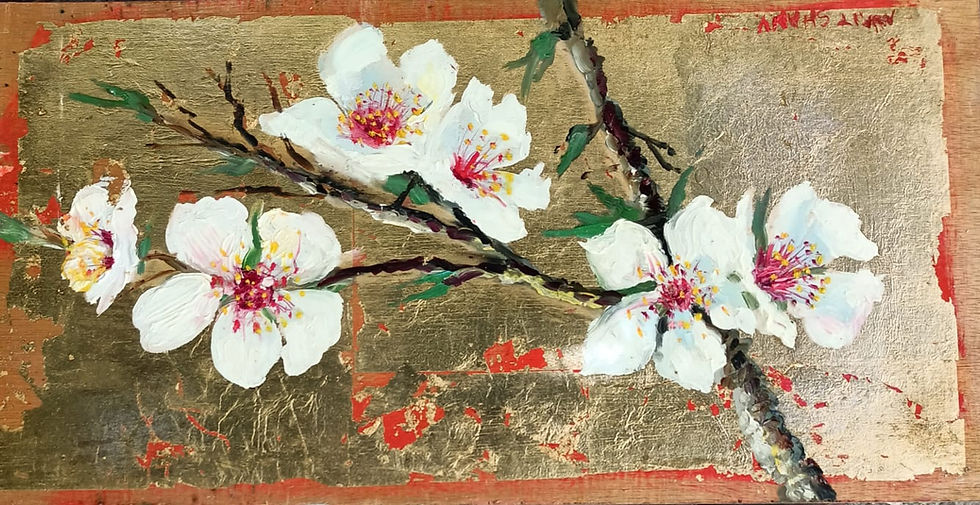NURIT SHANY - DUALITY by Shlomit oren
- Nurit Shany

- Jun 7, 2021
- 4 min read
Updated: Jan 12, 2023
NURIT SHANY - DUALITY
Shlomit Oren
Does everyone see what we see?
Do we see others as we see ourselves?
These questions have preoccupied humans since the dawn of history. The simplistic answer to all these questions is usually "no", but if you try to understand more in depth the answers become complicated, and they are actually at the heart of Thomas Cohn's Paradigm Shift theory.
Since we cannot "get out of our skin" and see the world through other eyes, the artist Nurit Shany offers us two more points of view. In the "Parallel Reality" series, she paints two images that are taken from everyday life in the public space and their reflection. At first glance it seems that the reflection is the same as the original, but on closer inspection differences and gaps are revealed. Herein lies the essence. The gaps illustrate the differences between the perspectives and allow us to see more things, from higher and more spiritual dimensions, that are less visible to the eye.
Although each image has countless different points of view, Shany chooses to show only two options of its contents, due to the limitations of the pictorial medium, in which she finds other advantages. This choice, the duality folded into it, is the heart of the series.
Escapism, Oil on Canvas, 180X100 cm, 2020 When looking at the paintings it is clear that the lower part of the image is a reflection of the upper half, but it can be added that the upper half is also nothing more than a reflection of reality through the eyes and hands of Shany. Even after 2500 years Plato's words are muscular and existent – “we are all still in the same cave, watching shadows and reflections.”
The goal of Shany in this series is to release a convention, the viewer patterns of perception, and offer him an alternative. It is a game of consciousness that calls us to awaken to read reality as multicolored and layered, not to see it in black and white, in an either-or angle but embrace its multiplicity. The call for awakening and rejection of modern escapism is especially evident in the sequence of works of the series dealing with fire. The gap between the blazing flames and the indifferent women is so jarring that we have a desire to shake them.
She is a professional storyteller and this is evident in her works. Each of them tells a story. She fabricates the story from the core and assembles it from objects she locates in the environment. She often photographs people, landscapes and objects and puts them together into one coherent scene. Shany is not a painter of portraits, landscapes or still life. She weaves all of these together into one work, which in its
greatness can be reminiscent of the genre of historical paintings whose purpose was to fold an entire mythological, biblical or historical story into one image.
Almost all of the works are based on photographs in the public space taken during her strolls in Tel-Aviv‘s promenades and streets, in a museum, in a mall or in a public garden. This emphasizes the importance of a broader and more inclusive public discourse, one that allows for pluralism and the hearing of different opinions. At the same time, there is also a preoccupation with the gap between the personal and the public - the mask that most of us wear when we are in society hiding our faces under our soul bird, which is revealed in the reflections of Shany.
Exiting a Movie Clube, Oil on Canvas, 130X100 cm, 2020
It is evident that Shany researches and draws inspiration from history of art, even if inadvertently. This is especially noticeable in the painting "Adam Eve and the Apple tree": on the left side of the painting the apple tree embraces the hidden figures of modern Adam and Eve in a way that quotes the composition of Lucas Cranach. On the right a man and a woman are marching and conversing, their body posture is very reminiscent of that of Aristotle and Plato from Raphael's painting The Athens School in the Vatican.
Adam, Eve and the apple tree, Oil on Canvas, 180X100 cm, 2020
Law and gospel (Law and Grace) Aristotle and Plato from Raphael's painting The Athens School in the Vatican.
The hidden figures of Adam and Eve of Lucas Cranach's The elders, law and gospel (Law and Grace)
In an unconventional and unaccepted way, Shany occasionally proposes to turn her paintings upside down so that the reflection seems like the main scene, in order to further encourage the recognition of the multiplicity of points of view.
Shany's color is soft and delicate. Even when she describes harsh looks, she does not give up on beauty. For her, beauty is a tool, a means of seduction for the viewer, or if you will, an ideological gateway. This is how she captures the viewer's gaze and slowly introduces him to the world she has created. At first glance he sees the upper scene, the inverted scene requires more effort and with it the details begin to unfold. Behind each of them stands a thought.
There is no constancy in the Shany’s paintings, in each she opens a different door: once the figures in the reflection alternate between them, elsewhere the reflection shows the maturation of the figures, in others she gives her figures wings or gives them animal and bird heads. Each painting is a different story and together they make up a broader statement.
Looking in into the unknown with a cellphone,
oil on canvas, 100x150 cm, 2019
For Shany the act of painting is necessary but it also comes to serve an idea she is interested in conveying. It turns out that duality does not end with the reflections, because they allow a glimpse into parallel realities.









Comments